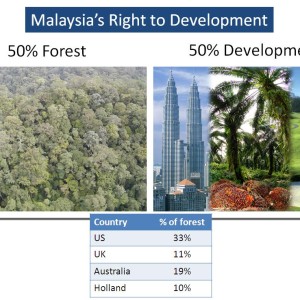TPPA impact
TALKS on the Trans Pacific Partnership Agreement (TPPA) have ended recently, and we still do not know much about the details. How is the TPPA expected to affect Malaysia’s palm oil industry?
Tan Sri Dr Yusof Basiron: We are always looking at opportunities to remove trade barriers because palm oil is an export-oriented commodity. We export 95% of our produce, not only crude palm oil, because there are many end products coming from palm oil now due to our research and development. So opening up access to big markets would be very beneficial to Malaysia as a producer and exporter of palm oil. We put our Government commitment in a deal that looks fair. Right now, we are being subjected to laws and regulations like the RSPO and other manifestos by the NGOs. They ask us to sign agreements and we delivered. But this is just a one-sided trade agreement, while the other party did not sign it. This is the problem. We want fair trade agreements that really reflect two-sided commitments and for all to implement what has been agreed on. So to me, this agreement will also give us the opportunity to get rid of all these one-sided trade agreements that we often been forced to enter with the NGOs.
Datuk Carl Bek-Nielsen: Access to new markets and new opportunities are always favourable. It is a great opportunity and we should look at this in a positive light. However, market access will also bring in new winds through the door of commerce, and these new winds will attract an increased level of attention, focus and scrutiny on the products that we intend to supply. When you enter into new markets, you will be infringing upon people and products who are already enjoying these markets. So there will surely be a counter-measure, whereby people will lobby to see how they can prevent your products from coming in, as you will basically be fighting for market share. However, if we have a good product, which I feel palm oil is, then by all means let there be a level playing field and let us compete on even terms.
Peter Benjamin: We still do not know the details, and they say the devil is in the details. In my opinion, as far as palm oil is concerned, TPPA is a good move. We will gain access to more markets, about 40% of the GDP of the world, so we will have access to all these markets of countries which are signing into TPPA.
Datuk Aliasak Ambia: Although we do not know the details, it is a fact that we are the leaders in palm oil and rubber, and with this we will get access to other markets. I agree that with our palm oil and rubber, we have a real advantage if we join the TPPA because TPPA provides a very big market for these commodities.
Chow Kok Choy: For Boustead Plantations, we are an upstream player so it is more about CPO pricing. With the TPPA, the levies will be lifted, so there will be no more taxes. There will be a level playing field in terms of pricing and should see a narrowing of the  current premium of US$140 of soy oil against palm oil. That means you can export with no tax, and we can import with no tax. That is the theory part of it. Of course, the negative part of it would be the new labour laws, minimum wages, and this will ultimately lead to a rise in production costs. So, you have the positive and the negative. The industry needs to be prepared, as costs will surely increase.
current premium of US$140 of soy oil against palm oil. That means you can export with no tax, and we can import with no tax. That is the theory part of it. Of course, the negative part of it would be the new labour laws, minimum wages, and this will ultimately lead to a rise in production costs. So, you have the positive and the negative. The industry needs to be prepared, as costs will surely increase.
Source : The Star
(The Star Roundtable on Palm Oil 2015)










Leave a Reply